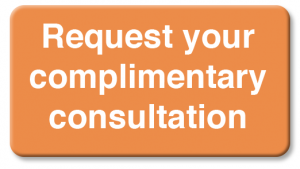Many GMS clients are currently seeking employees for virtual career opportunities. As the world responds to the COVID-19 global pandemic, thousands of employers need to hire additional staff. Often this need may be driven by rapidly changing business priorities. Increasing demand for specific products and services means companies need employees to help meet new objectives. With many directives for employees to stay at home, employers are quickly adapting jobs, work teams, and communication methods to fit the new challenge of operating a virtual workplace.
For job seekers, this new challenge requires them to understand the dynamics of a virtual workplace. They must also position their skills, education, and experience in a way that makes a solid case they are ideally suited for success in a virtual workplace. However, valuable skills in a real workplace may not easily translate or be recognizable in a virtual setting. What should job seekers know about virtual career opportunities?
GMS spoke with Craig B. Toedtman, Founder and CEO of Resource Development Company, Inc. (RDC), to learn more about virtual career opportunities. RDC is a privately held human resource management consulting firm that focuses on providing retained search and career management services. Craig agreed to share his expert guidance on this topic, as well as provide helpful resources for job seekers.
Virtual Career Opportunities: The Advantages
One of the best aspects of virtual career opportunities are the wide range of possible advantages for both employers and employees. Craig has extensive knowledge on this topic, having helped thousands of employees to obtain new jobs. According to Craig, the top advantages include:
Advantages for Employers
- Environmentally friendly (carbon emission reduction)
- Larger recruiting market for candidates
- Lower costs for office space and amenities
Advantages for Employees
- Access to more opportunities over a greater geographic range
- Better work-life balance (if employee can “leave” work at end of their day)
- No commuting reduces stress and costs
Virtual Career Opportunities: The Disadvantages
As with anything, along with advantages come possible disadvantages. Craig believes both employers and employees should be aware of the disadvantages, so they will know how to avoid them. Craig notes the major disadvantages may include:
Disadvantages for Employers
- Lack of interaction may reduce teamwork and synergies
- Scheduling conflicts
- Some processes function best in a centralized format
Disadvantages for Employees
- Communications may be a challenge
- Diminishing promotional opportunities (difficult to show additional aptitudes and talents)
- Working alone may lead to negative isolation effects
The Real Challenge that Must be Overcome for Virtual Career Opportunities
Ultimately, Craig believes the real challenge for employers is two-fold:
- Identify the critical success factors surrounding virtual career opportunities
- Put tools in place to execute and monitor actions to ensure success
If employers are able to meet this real challenge, then the question turns to the strength of job seekers under consideration for the position. Craig’s firm administers the DiSC® Personality Assessment to help job seekers understand their strengths, characteristics, and preferred behavior style.
DiSC® Personality Traits and Virtual Workplaces
Certain personality traits may perform well in virtual career opportunities that require higher levels of isolation. “C” personalities that do well on clearly defined tasks may excel in these positions, if expectations are clear. “D” personalities may also excel in virtual workplaces if there are specific goals they must obtain.
However, other personality traits may do very well in virtual career opportunities if the position suits their styles. “I” personalities prefer interaction, so a remote sales position requiring interaction with clients and prospects may be an area they can be highly successful. “S” personalities that prefer close team work may be ideally suited for roles requiring a high level of interaction with other team members.
Resources to Find Virtual Career Opportunities
Craig’s firm notes the following online sites are helpful for job seekers looking for virtual career opportunities:
FlexJobs Remote Companies That Thrive on Virtual Work
SkillCrush Companies Hiring Remote Workers
What Should Employers do?
Employers looking to create successful virtual career opportunities should consider working with a career services firm that has knowledge and experience with virtual workplaces. Relocation Management Companies (RMCs) are ideal sources for information on candidate recruitment and talent acquisition programs.
Pre-Decision Services are critical for employers as they provide valuable information about a candidate’s ability to accept a position and be successful. Assessment data can be paired with structured interview questions to better understand the candidate’s interests, goals, and motivations. DiSC® Personality Assessments administered by qualified professional career service firms such as RDC provide a wealth of information for employers to understand if the job seeker is a good fit, and for the job seeker to determine if they are suited for various virtual career opportunities.
Conclusion
GMS’ team of corporate relocation experts has helped thousands of our clients determine how to develop a talent acquisition program that is responsive to changing company needs. Our team can help your company determine how to turn virtual career opportunities into successful new hires.
GMS was the first relocation company to register as a “.com.” The company also created the first online interactive tools and calculators, and revolutionized the entire relocation industry. GMS continues to set the industry pace as the pioneer in innovation and technology solutions with its proprietary MyRelocation® technology platform.
New SafeRelo™ COVID-19 Knowledge Portal
GMS recently launched its new SafeRelo™ COVID-19 Knowledge Portal featuring a number of helpful resources including:
- Curated selection of news and articles specific to managing relocation programs and issues relating to COVID-19
- Comprehensive guide to national, international, and local online sources for current data
- Program/Policy Evaluation (PPE) Tool for instant relocation policy reviews
Contact our experts online to discuss how your company can leverage virtual career opportunities to continue growing your business, or give us a call at 800.617.1904 or 480.922.0700 today.
We're Here to Help! Request a Courtesy Consultation
Are you ready to talk to a Mobility Pro? Learn how GMS can optimize your mobility program, enhance your policies to meet today’s unique challenges, receive an in-depth industry benchmark, or simply ask us a question. Your Mobility Pro will be in touch within 1 business day for a no-pressure, courtesy consultation.



